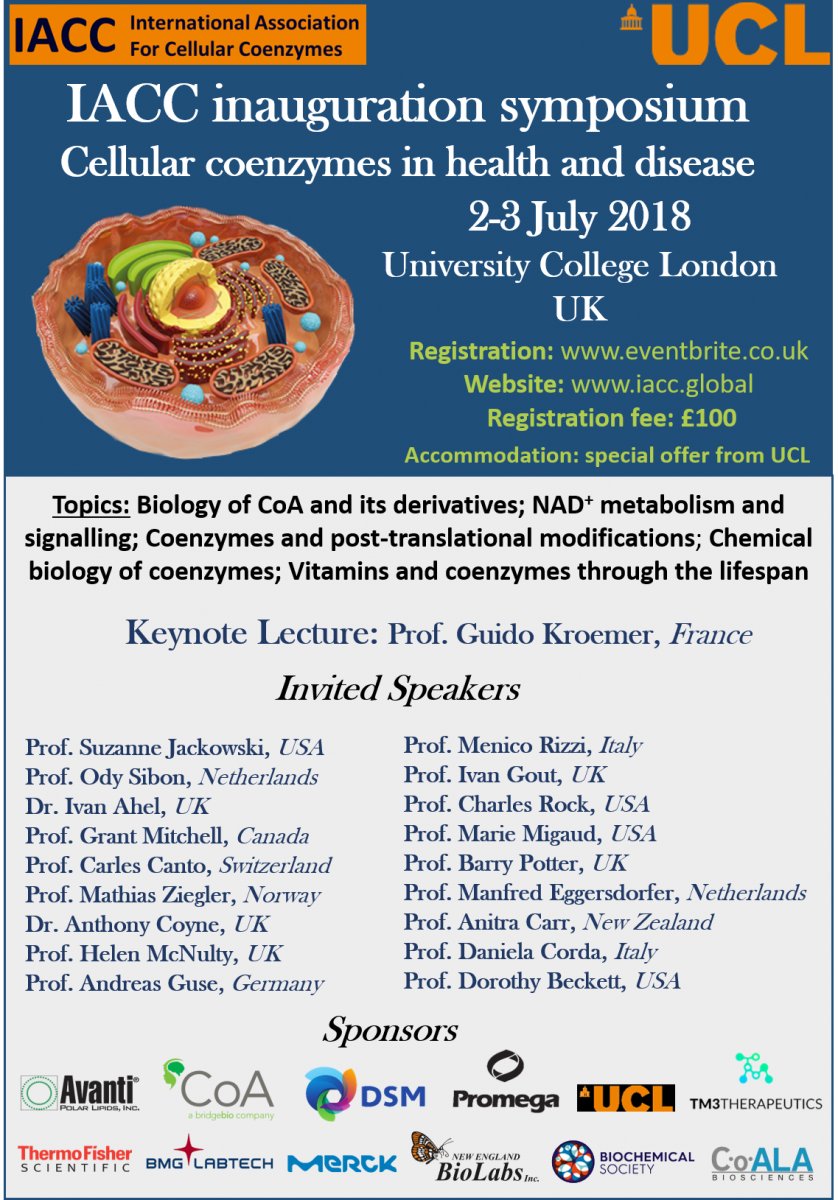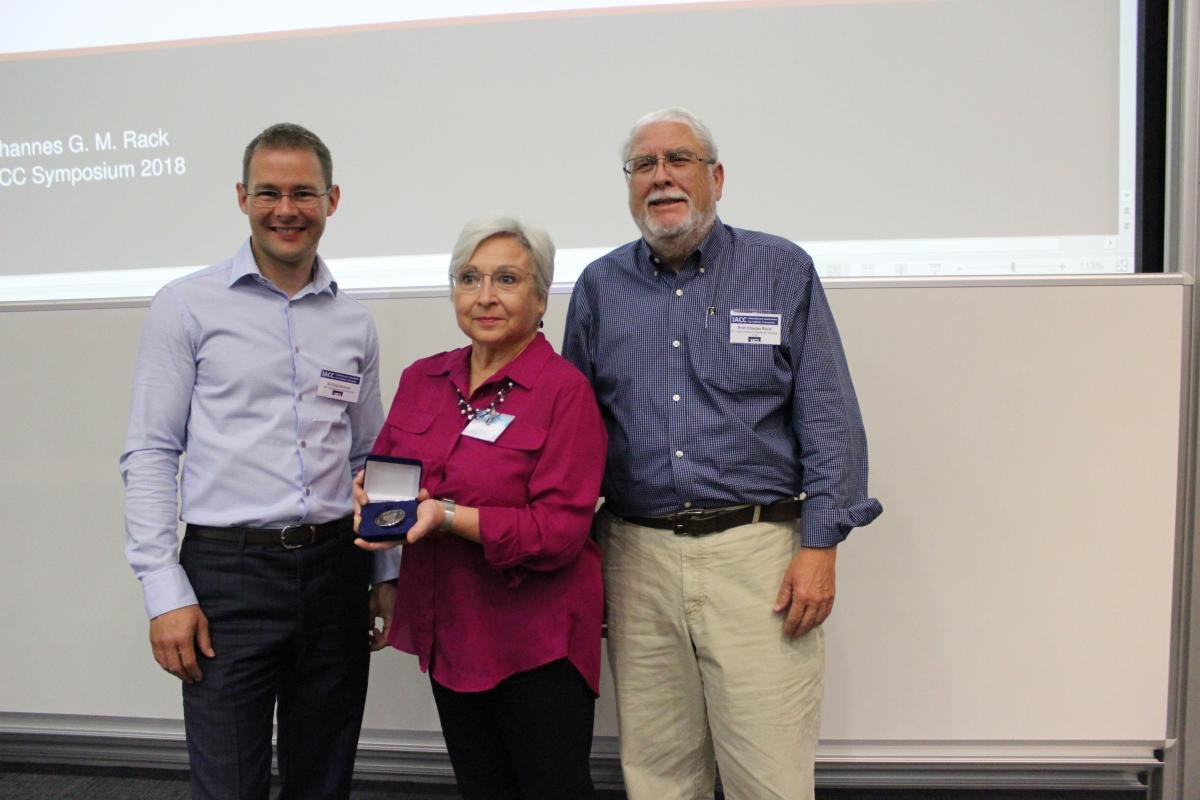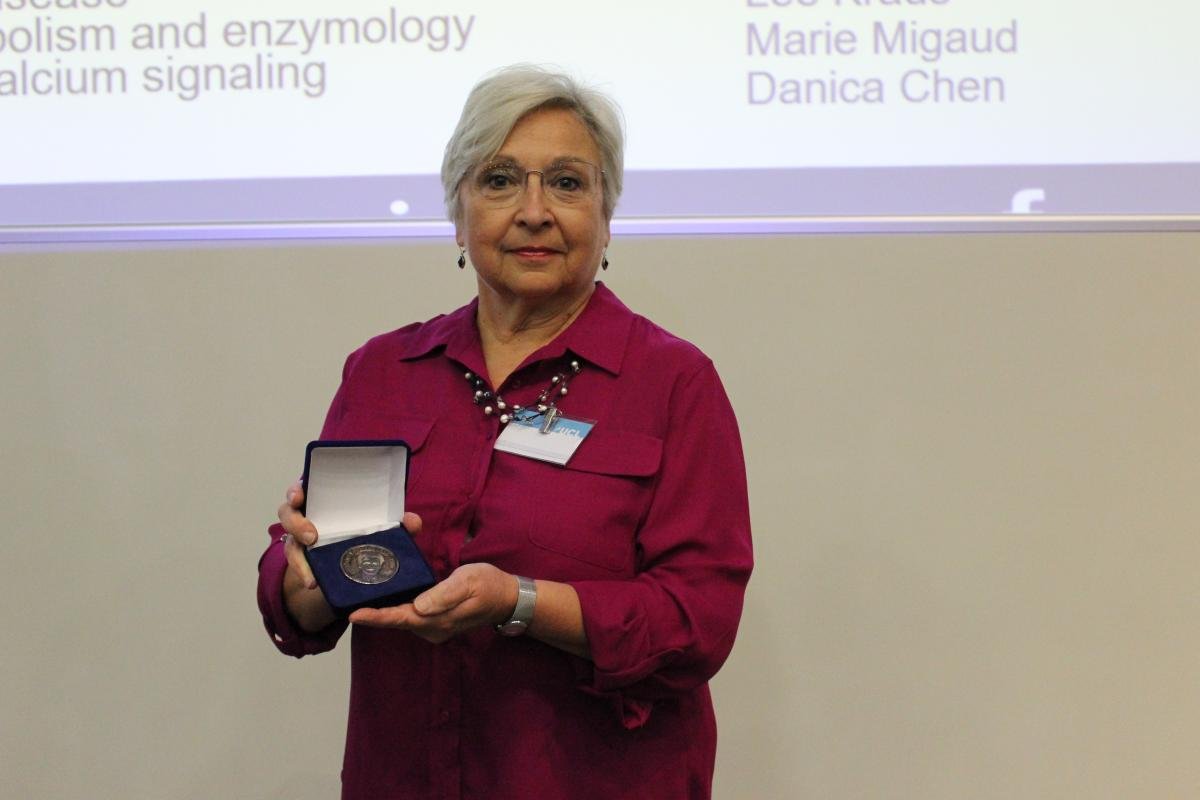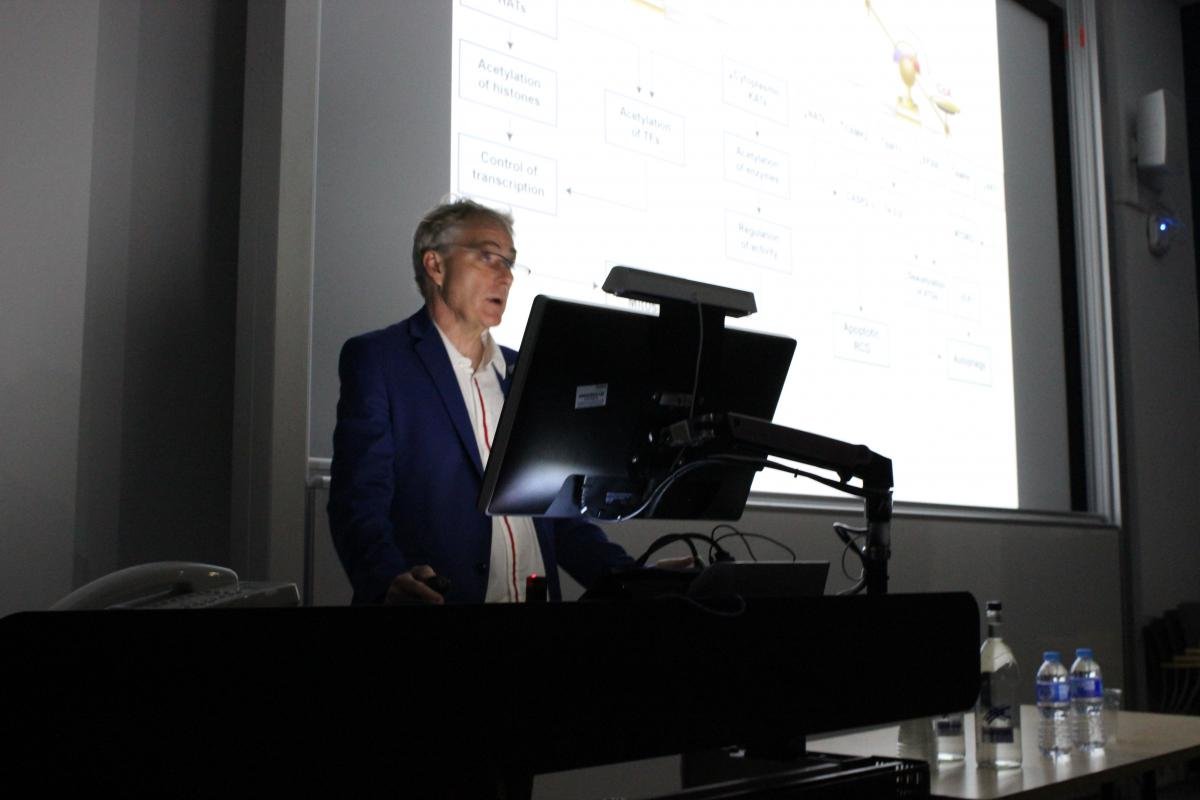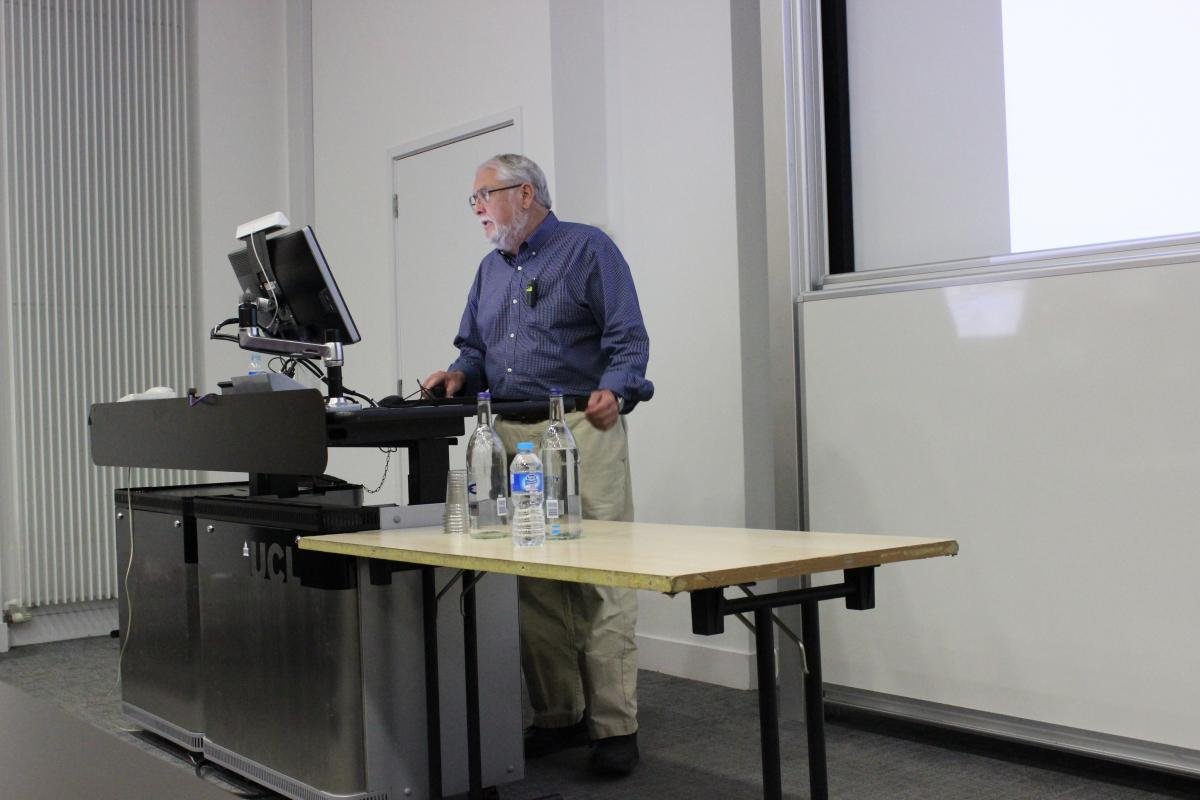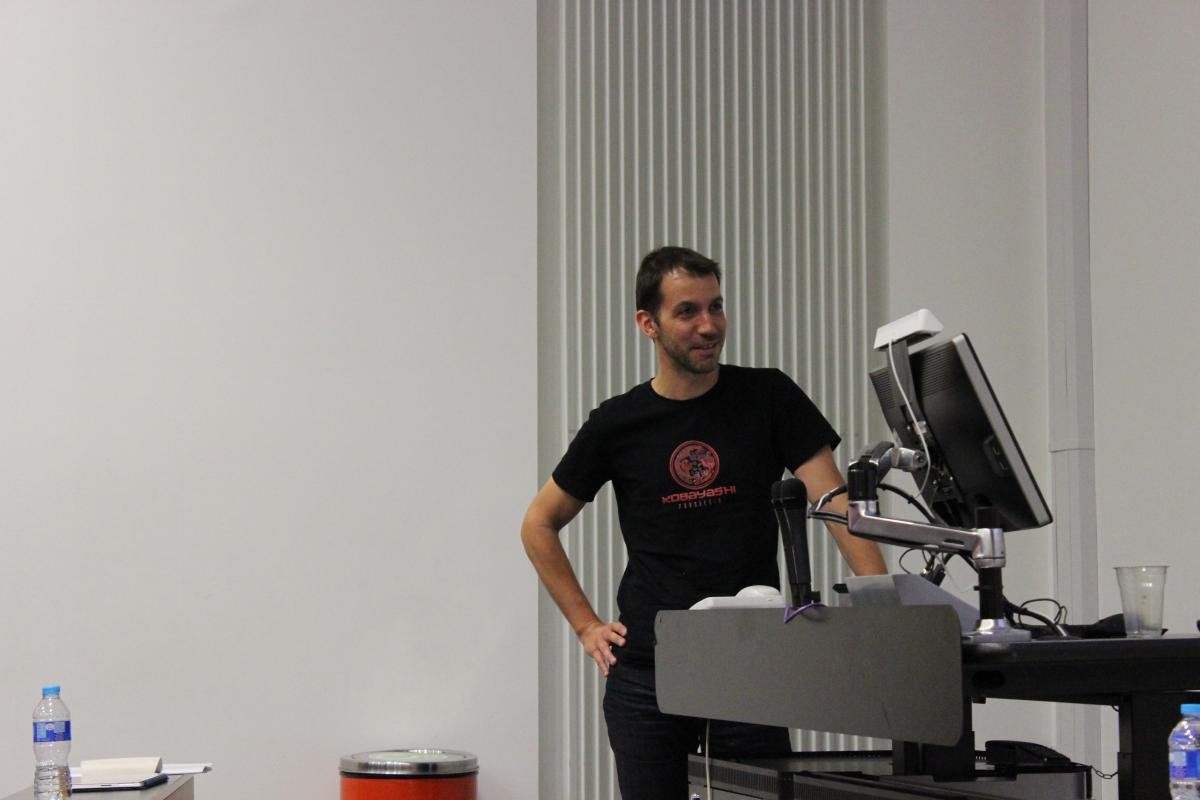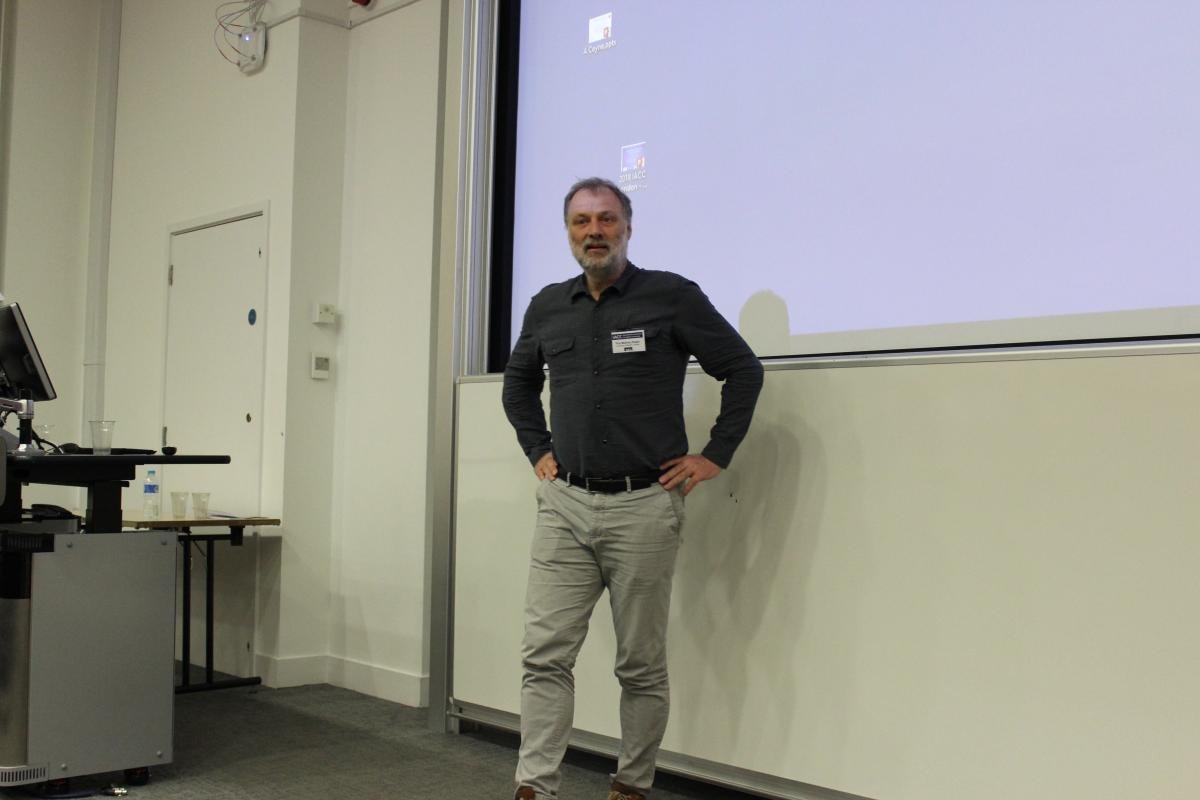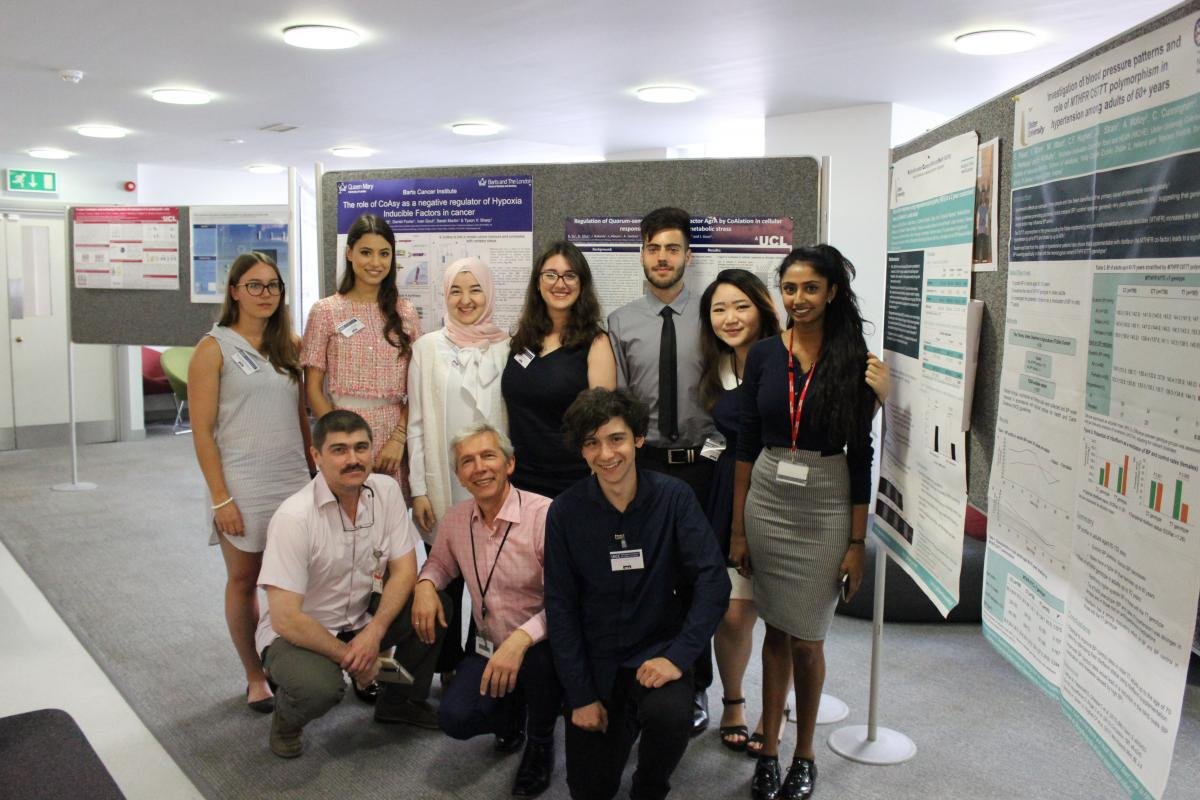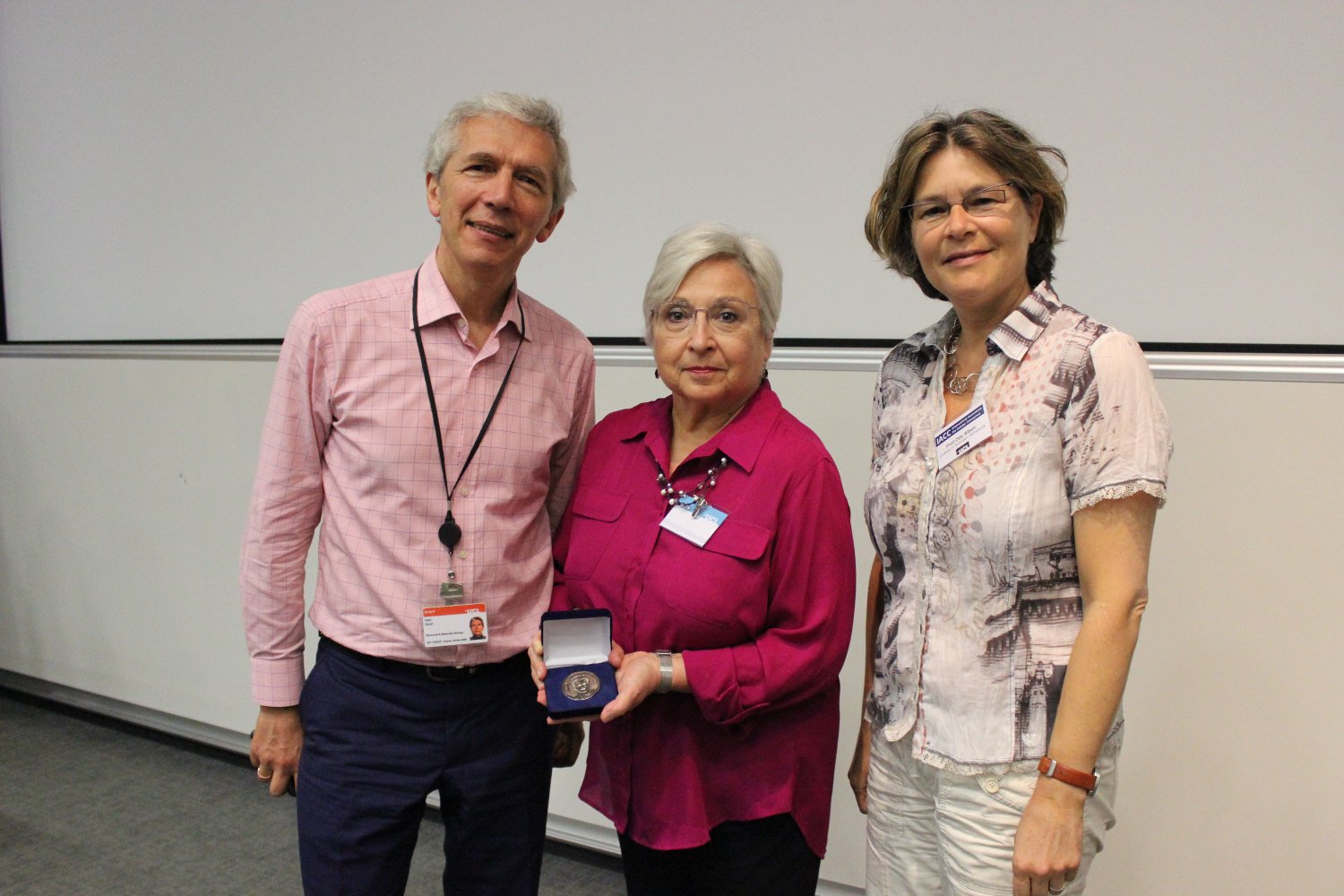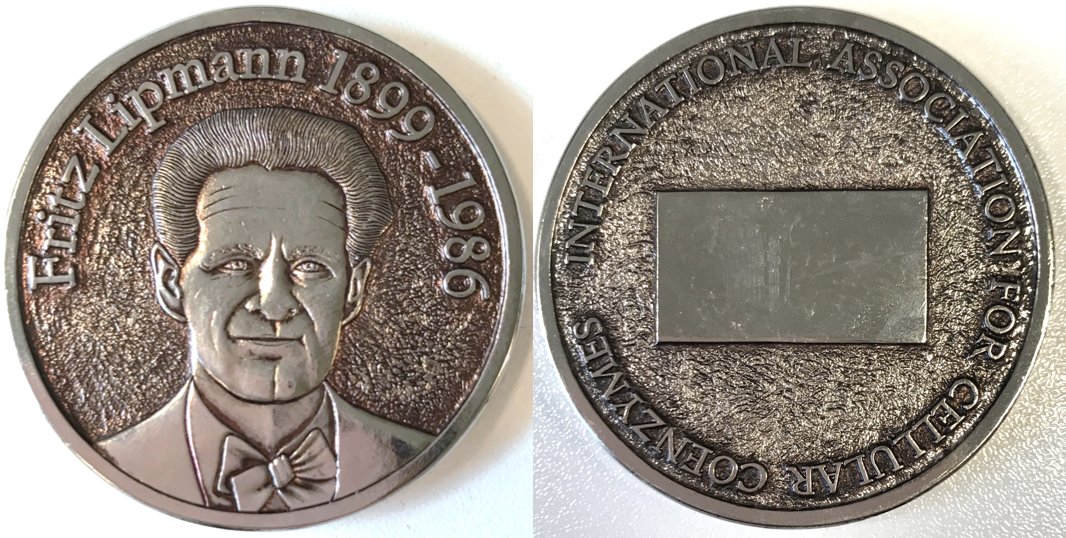- Organizing committee
- The program
- Invited Speakers
- Registration
- Abstract submission
- Venue
- Accommodation
- Sponsors
- Contact us
- Gallery
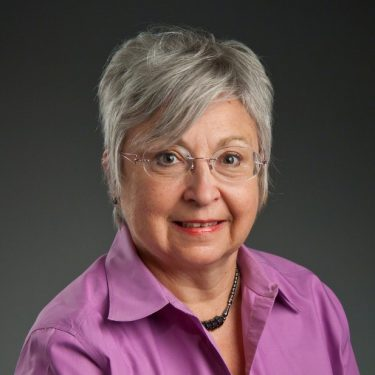
Prof. Suzanne Jackowski, IACC Executive committee
St. Jude Children’s Research Hospital, 262 Danny Thomas Place Memphis, TN 38105 USA[email protected]
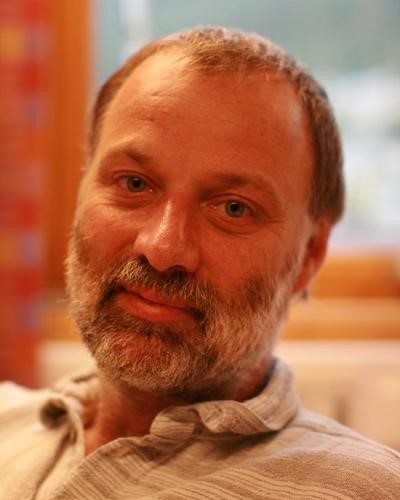
Prof. Mathias Ziegler, IACC Executive committee
Univeristy of Bergen, Postboks 7804 5020 Bergen, Norway[email protected]
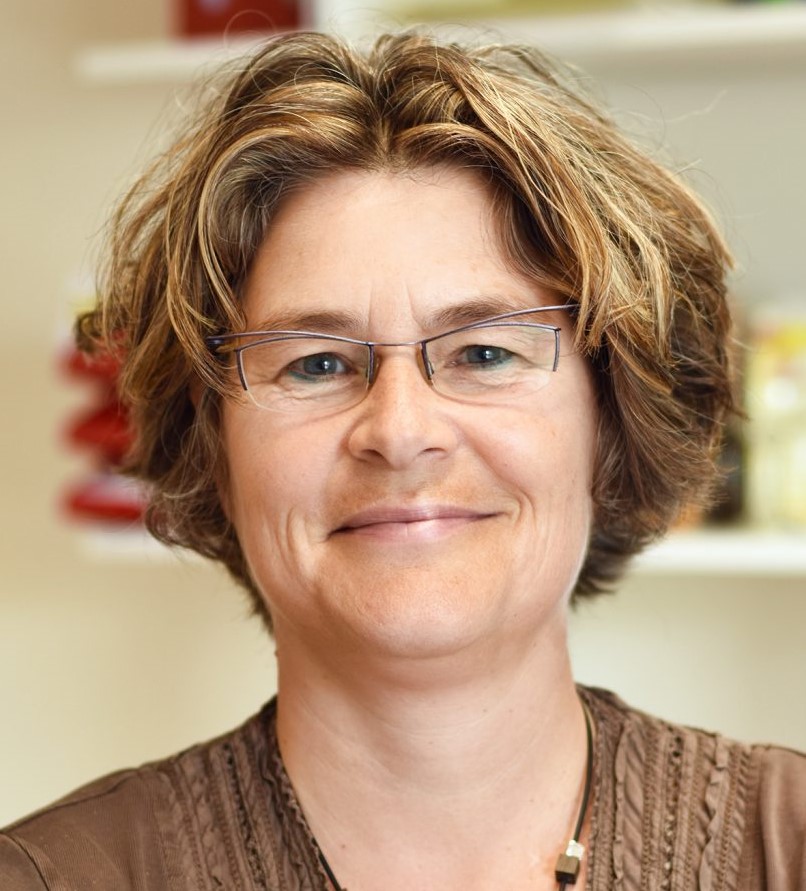

Prof. Manfred Eggersdorfer, IACC Executive
Royal DSM and the University Groningen, Netherlands[email protected]
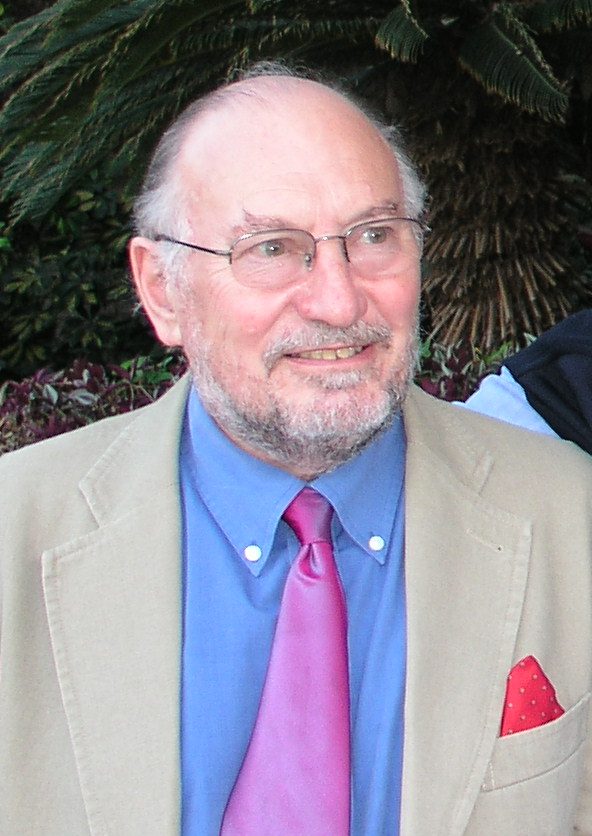
Prof. John Mowbray, IACC Treasurer
University College London Gower Street London, WC1E 6BT, UK[email protected]
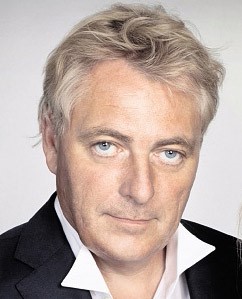
Prof. Guido Kroemer, University of Paris Descartes, France
Research interests
- Major disease-relevant pathways of intracellular stress management (apoptosis, autophagy, senescence, necroptosis etc).
- Metabolism, inflammatory/immune regulation and organismal homeostasis.
- Nutrition targeted changes to reduce obesity. Age-associated pathologies.
- Prevention and treatment of cancer: exploring the mode of action of effective anticancer drugs.
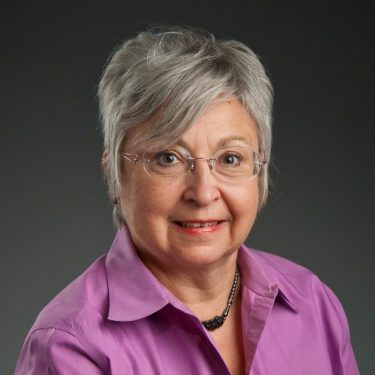
Prof. Suzanne Jackowski, St. Jude Children’s Research Hospital, USA
Research interests
- Regulation of phospholipid homeostasis.
- Control of intracellular coenzyme A content.
- Phospholipid metabolism and membrane stress responses.
- Pantothenate kinase as a target for small molecule therapeutics.
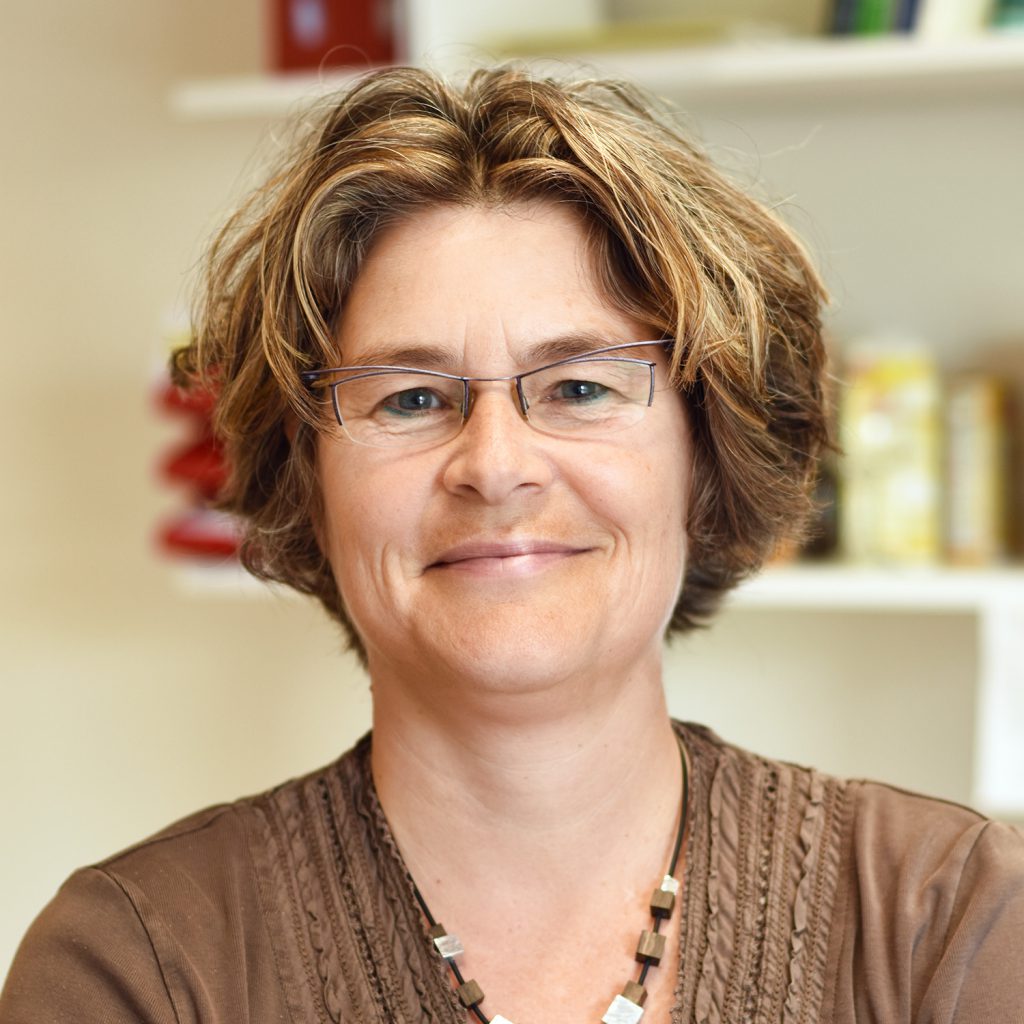
Prof. Ody Sibon, University of Groningen, Netherlands
Research interests
- Elucidation of coenzyme A biosynthesis and homeostasis in cell-based and animal models.
- Understanding the mechanisms of altered coenzyme A uptake.
- Development of novel therapeutics targeting dysregulated CoA biosynthetic pathway.

Prof. Grant Mitchell, Université de Montréal and CHU Sainte-Justine, Canada
Research interests
- Engineering metabolic pathways to prevent or treat several diseases including gyrate atrophy.
- Conducting research trials analysing cytochrome oxidase deficiency as well as tyrosinemia and North American Indian Cirrhosis.
https://www.chusj.org/en/Bio?id=3813cf55-a0ac-4a90-bfdf-0250f0ad5b26
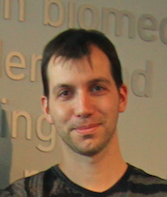
Prof. Carles Canto, Nestlé Institute of Health Sciences, Switzerland
Research interests
- Understanding how nutritional approaches may be applied for protection against metabolic disorders and cardiovascular complications.
- Energy balance in the body.
- Mitochondrial proteins.
- AMPK.
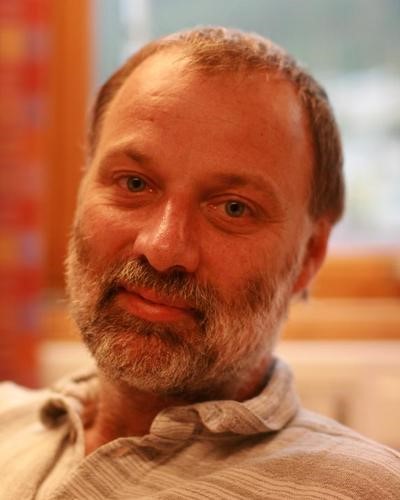
Prof. Mathias Ziegler, University of Bergen, Norway
Research interests
- Metabolism and compartmentalization of NAD functions.
- Molecular Bioenergetics and Signalling.
- Translational Cell Signalling and Metabolism.
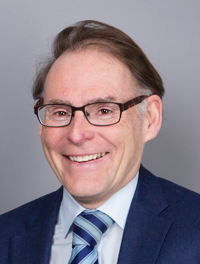
Prof. Andreas Guse, University Medical Center Hamburg-Eppendorf, Germany
Research interests
- Fields of biochemistry, molecular biology, cell biology.
- Cellular signal transduction and molecular mechanisms of T cell activation.
- Immunopharmacology and the design of anti-inflammatory drugs.
- High resolution optical techniques for cell signaling research.
- Research in medical education.
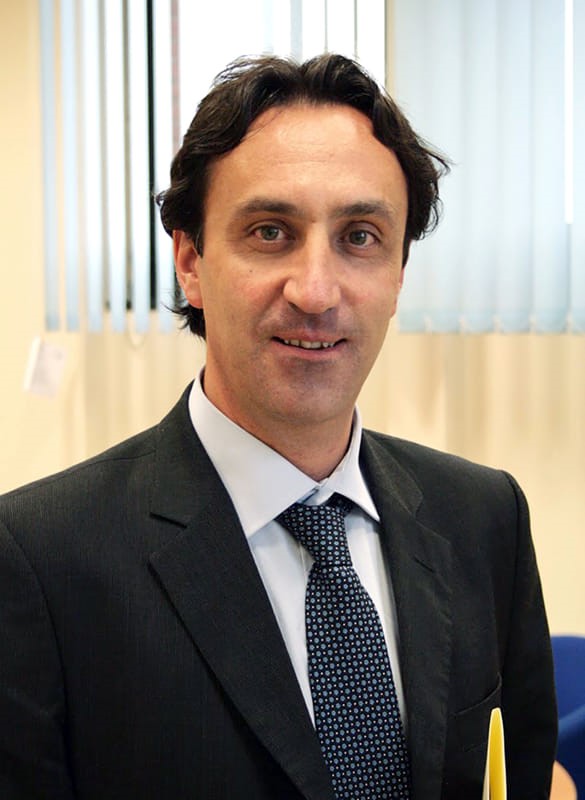
Prof. Menico Rizzi, University of Piemonte Orientale “Amedeo Avogadro”, Italy
Research interests
- Structural biology and enzymology
- Head of a group investigating enzymes and proteins of medical interest, with a particular focus on poverty-linked diseases.
http://www.who.int/medicines/services/expertcommittees/pharmprep/MenicoRizzi_INN_expert.pdf
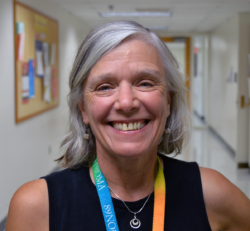
Prof. Dorothy Beckett, University of Maryland, USA
Research interests
- Biophysical Chemistry.
- Coupled equilibria in biological regulation.
- Protein:protein interactions and regulation of protein function.
- Bacterial TypeVI secretion.
- Communication between metabolism and transcription regulation.
http://www.chem.umd.edu/faculty-staff-directory/facultydirectory/dorothy-beckett
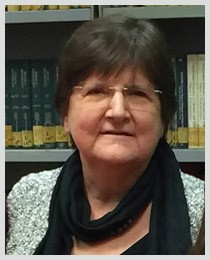
Prof Daniela Corda, Institute of Protein Biochemistry, Italy
Research interests
- Lipid signalling and membrane traffic.
- Role of GPIs in immune and inflammatory responses.
- Use of the GPIs as anticancer drugs (leads) based on their effects on the invasive potential of tumour cell lines.
- ADP-ribosylation, BARS, molecular mechanisms of membrane fission.
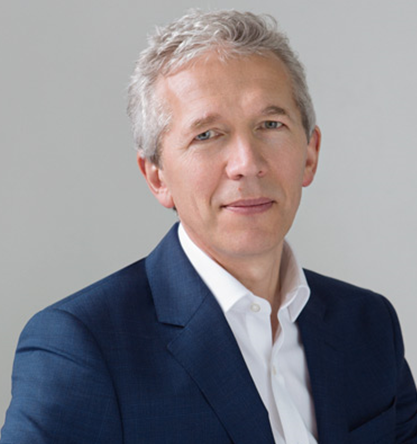
Prof. Ivan Gout, University College London, UK
Research interests
- Regulation of cell growth and metabolism in health and disease
- Coenzyme A biosynthesis and cellular functions
- Protein CoAlation, redox regulation and antioxidant function of CoA

Prof. Charles Rock, St. Jude Children’s Research Hospital, USA
Research interests
- Control points in fatty acid biosynthesis.
- Regulation of membrane phospholipid metabolism.
- Small molecule therapeutics.
- Prokaryotic lipid metabolism.
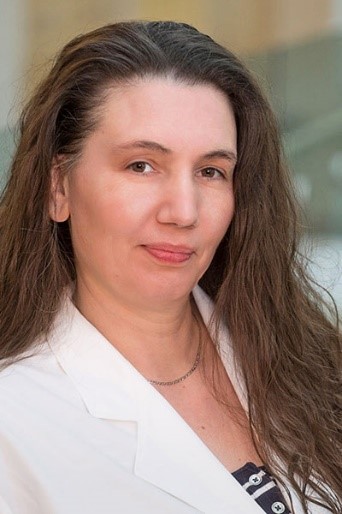
Prof. Marie Migaud, Mitchell Cancer Institute, University of South Alabama
Research interests
- Vitamin B3 (Niacin) metabolism and its impact on disease management, treatment and prevention.
- Cellular metabolism and its relevance to health through balanced and informed vitamin supplementation.
- Novel chemical entities as putatives anti-cancer lead compounds.
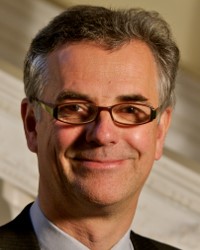
Prof. Barry Potter, University of Oxford, UK
Research interests
- The Chemistry of Cell Signalling.
- Anticancer Drug Design & Discovery.

Ivan Ahel, University of Oxford, UK
Research interests
- Pathways and protein functions underlying genome stability.
- ADP-ribosylation, PARPs.
- Oxidative stress and microbial pathogenesis.

Prof. Manfred Eggersdorfer, Royal DSM and the University Groningen, Netherlands
Research interests
- Role of essential nutrients for health, vitality and well-being.
- Impact of inadequate intake and status of micronutrients on long term health and healthy ageing.

Prof. Helene McNulty, Ulster Universtiy, Biomedical Sciences Research Institute, UK
Research interests
- Folate and metabolically-related B vitamins.
- Understanding of nutrition-related health issues.
- Achieve tangible impact to facilitate policy aimed at disease prevention, and to drive innovation activities.
- Leading a research team to determine the role of procyanidin-rich foods in preventing cognitive decline in 1000 participants from the original TUDA cohort being re-sampled 6 years after initial investigation.
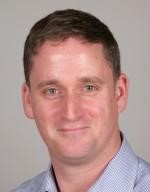
Dr. Anthony Coyne, University of Cambridge, UK
Research interests
- Fragment based approaches to enzyme inhibition.
- Coenzyme A pathway.
- Cytochrome P450s.
- Microdroplets.
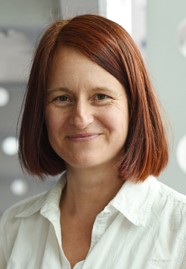
Prof. Anitra Carr, University of Otago, New Zealand
Research interests
- Vitamin C bioavailability and health effects.
- Recommended dietary intakes.
- Fatigue and quality of life.
- Clinical studies for the prevention and treatment of acute and chronic diseases such as cancer and severe infection.
http://www.otago.ac.nz/christchurch/departments/pathology/people/anitracarr.html
To register, please follow the link below
https://www.eventbrite.co.uk/e/international-association-for-cellular-co...
Registration fee - £100.00
What's included in your registration fee?
• Admission to all scientific sessions
• Full access to the trade exhibition
• Full access to scientific poster sessions
• Buffet lunch
• Tea and coffee breaks
• Conference material
• A printed conference program guide
• Certificate of Attendance – on request
• Access to CPD Points
Register early for an opportunity to book accomodation for only £34.58 p/n at Schafer House UCL Residence.
To book, contact Prof. J. Mowbray [email protected].
Guidelines for abstract submission
Abstracts are submitted for a poster presentation space and should be written for a scientific audience. The content should describe the background of your project, experimental models, main findings and conclusions of your study and should contain a maximum of 250 words.
Please ensure that your abstracts are submitted by the 21st of June 2018 to [email protected].
How to find us
University College London, Gower St, Bloomsbury, London WC1E 6XA

Anatomy building entrance
We have single rooms available arriving 1st July and departing 4th July 2018, in Schafer House UCL Residence at £38 p/n.
The number of rooms is limited!
For photos and detailed information about Schafer House, visit http://www.ucl.ac.uk/residences/information/sch
The Schafer House is only 5-10 min walk from the main College campus and Anatomy Building.
If you would like to stay in Schafer House during the Symposium, please send an email to [email protected] with the subject “Schafer House” and with the following information:
1. Name
2. Address
3. Gender: Male/Female (delete as appropriate)
4. IACC Symposium Registration Number
Payment information:
Send a Payment of GBP 114.00 to the following account:
Account Name: IACC
Account Number: 64459760
Sort Code: 30-99-21
BIC: LOYDGB21147
IBAN: GB65 LOYD 3099 2164 4597 60
Most Importantly add a Reference of: “YOUR FAMILY NAME”
No reservation will be made until the bank account is credited.
![[title]](/sites/default/files/avanti_0.jpg)
![[title]](/sites/default/files/coa.jpg)
![[title]](/sites/default/files/dsm.png)
![[title]](/sites/default/files/promega.png)
![[title]](/sites/default/files/ucl.jpg)
![[title]](/sites/default/files/biosoc.gif)
![[title]](/sites/default/files/bmg.gif)
![[title]](/sites/default/files/merc.png)
![[title]](/sites/default/files/thermo-fisher.png)
![[title]](/sites/default/files/bio-labs.png)
![[title]](/sites/default/files/tm3.png)
![[title]](/sites/default/files/coala.png)
Do you have questions about International Association for Cellular Coenzymes (IACC) Symposium 2018?
Contact Jovana Bakovic, [email protected]


